Four migrant workers received awards for their heroic actions during a fire at a River Valley shophouse in Singapore. Here are the key details:
- Four migrant workers (Inderjit Singh, Subramanian Saranraj, Nagarajan Anbarasan, and Sivasami Vijayaraj) were recognized with Friends of ACE coins from the Ministry of Manpower’s Assurance, Care and Engagement group.
- During the fire on April 8, 2025, they carried scaffolding across the road, set it up in front of the building, and stabilized it while people were rescued from a third-story window ledge.
- The fire resulted in the death of a 10-year-old girl and injuries to 21 others.
- One of the workers, Subramanian Saranraj, was quoted saying, “I have two children at home. When I saw the children’s faces and crying, I just thought ‘We need to help’.”
- The Singapore Civil Defence Force (SCDF) will also be awarding them the Community Lifesaver Award.
- Preliminary investigations found that the fire likely started in a storage area on the second floor of the shophouse and identified fire safety violations, including unauthorized partitions.
- Responsible parties could face fines up to $200,000, imprisonment up to 24 months, or both.
Analysis of Migrant Workers’ Heroism in the River Valley Fire
The Heroic Response
The actions of the four migrant workers during the River Valley shophouse fire represent a remarkable display of heroism for several reasons:
- Quick Thinking Under Pressure: Instead of waiting for official rescue teams, they identified an immediate solution by relocating scaffolding to create an escape route.
- Physical Risk and Courage: Approaching a burning building and stabilizing scaffolding during a fire put them at significant personal risk.
- Empathetic Motivation: As evidenced by Subramanian Saranraj’s quote about seeing the children’s faces, their response was driven by genuine human compassion rather than obligation.
- Resourcefulness: They repurposed construction equipment (scaffolding) for an emergency rescue, showing impressive problem-solving abilities.
- Community-Minded Action: Despite being migrant workers who often face marginalization in society, they immediately stepped into the role of community protectors.
Overcoming the Criminal Lapses
The heroism of these workers stands in stark contrast to the apparent negligence that contributed to the fire emergency:
The SCDF’s preliminary investigation revealed serious fire safety non-compliances, particularly “unauthorized works involving the erection of partitions within the premises.” These violations likely created the dangerous conditions that necessitated the rescue in the first place.
The workers’ actions represent a positive counterbalance to these lapses – their bravery and quick action mitigated what could have been an even more catastrophic outcome from the safety violations.
Criminal Lapses in Depth
Based on the article and general understanding of fire safety regulations:
- Unauthorized Partitioning:
- This likely refers to the addition of walls or dividers not in the building’s approved plans
- Such modifications can block escape routes, create hidden spaces where fires can develop undetected, and contribute to rapid fire spread
- In childcare settings, proper compartmentalization is crucial for containing fires and allowing safe evacuation
- Potential Additional Violations (common in such cases though not explicitly mentioned):
- Overcrowding beyond permitted occupancy limits
- Blocked or inadequate emergency exits
- Lack of proper fire detection systems
- Improper storage of flammable materials (suggested by the fire originating in a “storage area”)
- Insufficient fire suppression equipment
- Legal Consequences:
- The article notes potential penalties of up to $200,000 in fines and/or imprisonment up to 24 months
- These significant penalties reflect the serious nature of fire safety violations, particularly in premises where children are present
- Both building owners and operators could face liability
- Regulatory Framework:
- Singapore maintains strict fire safety codes under the Fire Safety Act
- Childcare facilities typically require special certifications and more stringent safety measures
- Regular inspections should catch such violations, raising questions about regulatory oversight
The tragic death of a 10-year-old child and injuries to 21 others demonstrate the potentially fatal consequences of these fire safety violations. Without the intervention of these migrant workers, the death toll might have been considerably higher.
Their heroism doesn’t erase the need for accountability regarding the safety violations, but it does showcase how ordinary individuals can rise to extraordinary circumstances when others’ safety is at risk.
How Safety Violations Become Criminal Offenses
Safety violations like those in the River Valley fire case cross into criminal territory for several key reasons:
Legal Framework for Criminality
- Statutory Designation: Many jurisdictions, including Singapore, have specific legislation that explicitly criminalizes certain safety violations. The Fire Safety Act in Singapore, for example, designates specific safety requirements as legal obligations, making their violation a criminal offense.
- Mens Rea (Mental State): While not all safety violations require intent to harm, many criminal statutes require at least:
- Knowing disregard of safety requirements
- Willful negligence in maintaining safety standards
- Deliberate avoidance of compliance obligations
- Public Welfare Doctrine: Safety regulations are designed to protect the public, and violations can be criminalized even without proof of intent under the “public welfare doctrine” in many legal systems.
Specific Elements That Make Safety Violations Criminal
- Duty of Care: Building owners and operators have a legal duty of care toward occupants. Breaching this duty through safety violations constitutes a criminal act when:
- There’s a clear legal obligation (established through codes or regulations)
- The violation creates foreseeable risks to others
- The breach causes or could have caused harm
- Risk to Vulnerable Populations: Violations in settings serving vulnerable populations (like children in the nursery case) often carry enhanced criminal penalties due to:
- Higher duty of care requirements
- Additional licensing obligations
- More stringent compliance standards
- Commercial Benefit: When violations occur in commercial settings and potentially create profit through cost-cutting (e.g., avoiding proper fire safety installations), this commercial motivation can elevate the offense and penalties.
In the River Valley Case
The specific violations mentioned (unauthorized partitions) likely became criminal because:
- They required deliberate action (constructing unauthorized partitions)
- They would have been done with knowledge that they violated existing building codes.
- They created demonstrable risk that materialized in actual harm (death and injuries)
- They occurred in a setting with children, triggering the enhanced duty of care standard.s
The significant penalties mentioned ($200,000 fines and up to 24 months imprisonment) reflect the serious criminal nature of these violations, especially given the fatal outcome. These penalties serve not only as punishment but as deterrence to others who might consider bypassing safety regulations for convenience or financial gain.
Real estate transactions involve substantial sums of money and complex processes, making the industry particularly vulnerable to fraud. Here’s a comprehensive explanation of fraud prevention methods in real estate:
Internal Controls
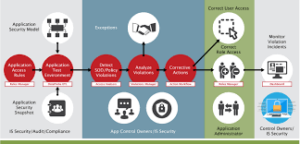
- Segregation of duties: Distribute responsibilities so no single person controls an entire transaction process. For example, separate the roles of payment approval and payment recording.
- Regular reconciliation: Compare financial records against bank statements to quickly identify discrepancies that might indicate fraud.
- Multi-level approval workflows: Implement systems where large transactions require review and authorization from multiple individuals.
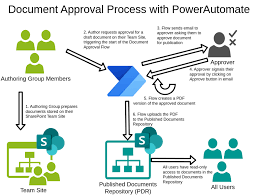
Transaction Monitoring
- Bank account monitoring: Regularly review bank statements and transaction records to spot unusual activity.
- Transaction alerts: Set up notifications for transactions exceeding certain thresholds or matching suspicious patterns.
- Data analytics tools: Employ software that can detect irregular financial activities in real time, allowing for swift intervention.
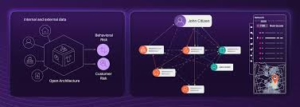
Third-Party Verification
- Vendor verification: Validate vendor legitimacy by checking tax IDs, business licenses, and references before engaging in business relationships.
- Customer/client screening: Conduct background and credit checks on potential clients, especially for high-value transactions.
- Title insurance and verification: Ensures property ownership is legitimate and protects against fraudulent title claims.
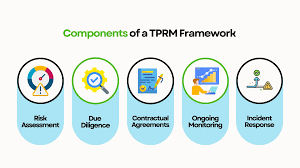
Cybersecurity Measures
- Multi-factor authentication: Require additional verification steps beyond passwords when accessing sensitive systems.
- Password management: Implement policies for complex passwords that change regularly.
- Secure communication channels: Use encrypted platforms for sharing sensitive transaction details.
- Email verification protocols: Verify email instructions for fund transfers, especially changes to wire instructions.

Information Security
- Role-based access control: Restrict access to sensitive data based on job requirements.
- Access logs: Maintain records of who accessed what information and when.
- Physical document security: Store sensitive paperwork in secure locations with limited access.

Employee Training and Culture

- Regular fraud awareness training: Educate staff about typical fraud schemes in real estate.
- Whistleblower policies: Create safe channels for reporting suspicious activities without fear of retaliation.
- Ethics policies: Establish clear guidelines about acceptable business practices.
Auditing Procedures
- Regular internal audits: Routinely review processes, transactions, and controls to identify weaknesses.
- External audits: Engage third-party specialists for unbiased evaluation of operations.
- Surprise audits: Conduct occasional unannounced reviews to prevent fraudulent activities that might be hidden during scheduled audits.

Real Estate-Specific Protections
- Secure wire transfers: Implement verbal verification procedures before transferring funds.
- Escrow account monitoring: Regularly verify escrow account balances and activities.
- Property inspection verification: Conduct in-person inspections to confirm that property conditions match representations.
- Document verification: Authentication of all transaction documents, including verification of signatures.
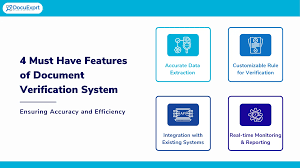
Technology Solutions
- Blockchain for property records: Use immutable digital records to prevent title fraud.
- Digital transaction management: Implement secure platforms for document signing and transfer.
- AI-powered fraud detection: Utilize artificial intelligence to identify patterns indicating potential fraud.

Regulatory Compliance
- Anti-money laundering (AML) procedures: Implement processes to identify suspicious transactions that
 may indicate money laundering.
may indicate money laundering. - Know Your Customer (KYC) protocols: Verify client identities thoroughly before conducting business.
- Compliance with real estate regulations: Stay current with changing laws and regulations governing real estate transactions.
By implementing a comprehensive approach that combines these methods, real estate companies can significantly reduce their vulnerability to fraud while protecting themselves, their clients, and their reputations.
Fraud Prevention Methods in Singapore’s Real Estate Market
Singapore’s real estate market operates within a highly regulated environment with specific legal frameworks and cultural contexts. Here’s how fraud prevention methods apply to Singapore’s real estate context:
Internal Controls in Singapore Context
- URA compliance integration: Align internal controls with Urban Redevelopment Authority (URA) regulations for property transactions.
- Synchronized HDB processes: For HDB properties, internal controls should account for HDB-specific requirements and restrictions.
- CPF withdrawal verification: Implement additional checks for transactions involving Central Provident Fund (CPF) withdrawals for property purchases.
Transaction Monitoring

- PayNow/FAST transaction monitoring: Monitor electronic transfers through Singapore’s instant payment systems.
- Property price benchmarking: Compare transaction prices against URA data to identify unusually high or low prices that might indicate fraud.
- SGD currency focus: Singapore’s strict currency controls mean unusual foreign currency transactions warrant extra scrutiny.
Third-Party Verification
- ACRA verification: Verify businesses through Accounting and Corporate Regulatory Authority records.
- Singapore law firm verification: Validate that conveyancing lawyers are registered with the Law Society of Singapore.
- CEA-licensed agents only: Ensure property agents hold valid Council for Estate Agencies licenses, which can be verified through the public register.

Cybersecurity Measures
- SingPass integration: Utilize Singapore’s national digital identity system for secure verification.
- Compliance with PDPA: Ensure all cybersecurity measures comply with Personal Data Protection Act requirements.
- Cyber Security Agency standards: Implement security measures aligned with CSA guidelines for Singapore businesses.

Information Security
- Document storage compliance: Align with Singapore’s strict data residency requirements for sensitive information.
- NRIC protection: Special handling for National Registration Identity Card numbers as required by law.
- Option-to-Purchase protection: Secure handling of Option-to-Purchase documents, which are critical in Singapore’s property transaction process.
Employee Training and Culture

- Singapore-specific fraud schemes: Train staff on local variants of property scams, including rental fraud and misrepresentation of property status.
- Conflict of interest awareness: Training on Singapore’s specific disclosure requirements regarding agent relationships with developers or sellers.
- Anti-corruption emphasis: Align with Singapore’s strict anti-corruption stance under the Prevention of Corruption Act.
Auditing Procedures
- IRAS compliance audits: Include checks for Inland Revenue Authority of Singapore compliance, especially regarding Seller’s Stamp Duty (SSD) and Additional Buyer’s Stamp Duty (ABSD).
- Valuation audit trails: Maintain clear records of property valuation processes critical to Singapore mortgage arrangements.
- Audit timing aligned with tax reporting: Schedule certain audits to align with Singapore’s tax reporting calendar.

Singapore-Specific Protections
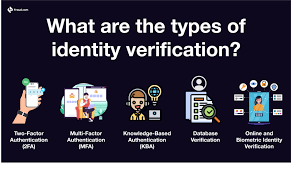
- Caveat verification: Implement processes to check the status of caveats on properties through the Singapore Land Authority (SLA).
- Temporary Occupation Permit (TOP) verification: Confirm the authenticity of TOP and Certificate of Statutory Completion documents.
- En bloc sale protections: Additional verification steps for collective sale transactions.
- Foreign ownership eligibility: Verification processes to ensure compliance with Residential Property Act restrictions on foreign ownership.
Technology Solutions

- MyInfo integration: Connect to Singapore’s national data repository for secure personal information verification.
- LandNet access: Utilize Singapore’s electronic land title registration system for secure property records.
- PropertyGuru data comparison: Use Singapore’s leading property portal data as an additional reference point for market prices.
Regulatory Compliance

- Monetary Authority of Singapore guidelines: Align with MAS regulations on property financing.
- Council for Estate Agencies practices: Implement CEA’s prescribed practices for estate agents.
- Anti-money laundering checks: Focus on compliance with specific requirements from Singapore’s Commercial Affairs Department.
Cultural Context Considerations
- Multi-racial verification processes: Ensure verification processes accommodate names and identities across Singapore’s diverse ethnic groups.
- Dialect barriers: Account for potential dialect differences when verifying the identities of elderly property owners.
- Face-to-face verification emphasis: Honor Singapore’s business culture preference for in-person meetings for major transactions.

By adapting these fraud prevention methods to Singapore’s specific regulatory environment and business culture, real estate companies can effectively protect themselves and their clients in this unique market.
Maxthon: A Guiding Light in the Digital Realm

As we find ourselves navigating through an age defined by swift technological growth, the significance of user experience cannot be overstated. The nature of our online interactions is constantly shifting, making it essential to reflect on the various aspects that shape our digital identities. When it comes to selecting a web browser—our crucial portal to the vast expanse of the internet—thoughtful decision-making becomes imperative. In a landscape rife with potential dangers, prioritising security and privacy is more important than ever. Amidst the multitude of choices available, one browser clearly rises above the rest: Maxthon. This groundbreaking tool has positioned itself as a key player in the market, adeptly addressing user challenges while remaining completely free of charge.
What sets Maxthon apart is its exceptional compatibility with Windows 11. It boasts an extensive array of advanced features and tools meticulously crafted to enhance online security. With robust ad-blocking capabilities and a thorough set of anti-tracking solutions, Maxthon creates a haven for its users in the digital world. In the highly competitive browser market, Maxthon has carved out a distinctive niche for itself, largely thanks to its seamless integration with Windows 11, making it a preferred option among various alternatives.
Maxthon private browser updates
As users traverse the constantly changing terrain of web browsing, Maxthon has garnered a solid reputation for its dependable performance. Its steadfast commitment to delivering a secure and private browsing experience truly distinguishes it from many rivals. Fully cognizant of the myriad threats lurking online, Maxthon dedicates itself to safeguarding users’ data through advanced encryption technologies. This strong emphasis on security not only enriches the overall browsing journey but also cultivates a profound sense of trust among its user base.
In this rapidly evolving digital landscape, where each click can lead to new challenges, Maxthon stands as a beacon of reliability and innovation. With its unwavering focus on user safety and privacy, it offers not just a means to access information but a sanctuary where users can explore freely and securely, knowing their digital footprints are well-protected.
